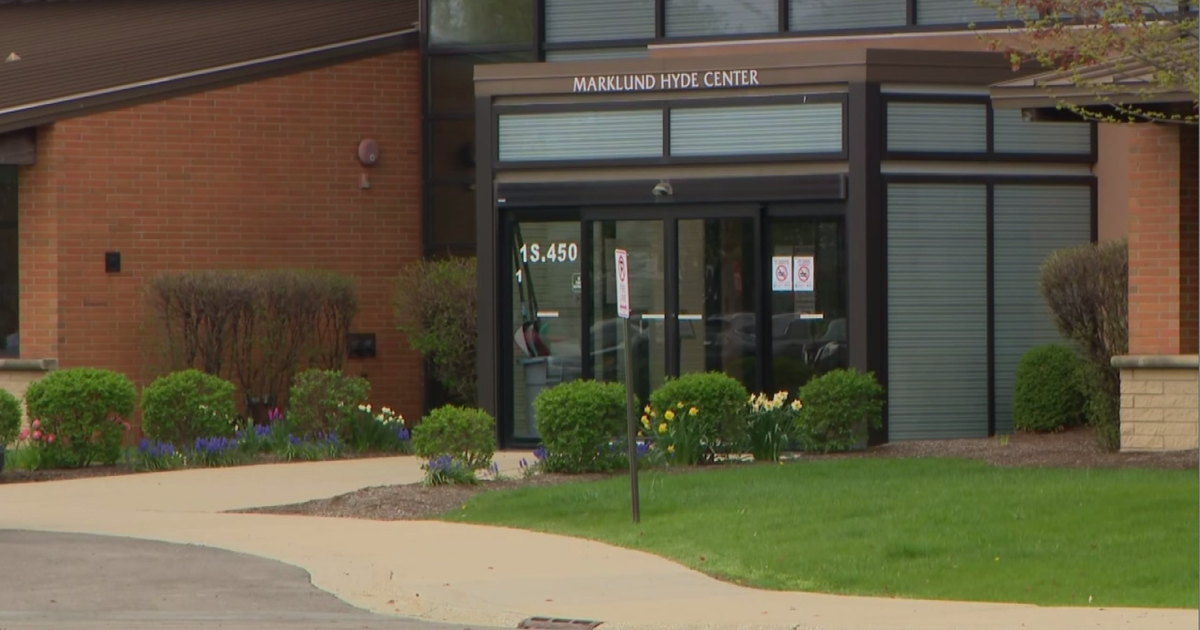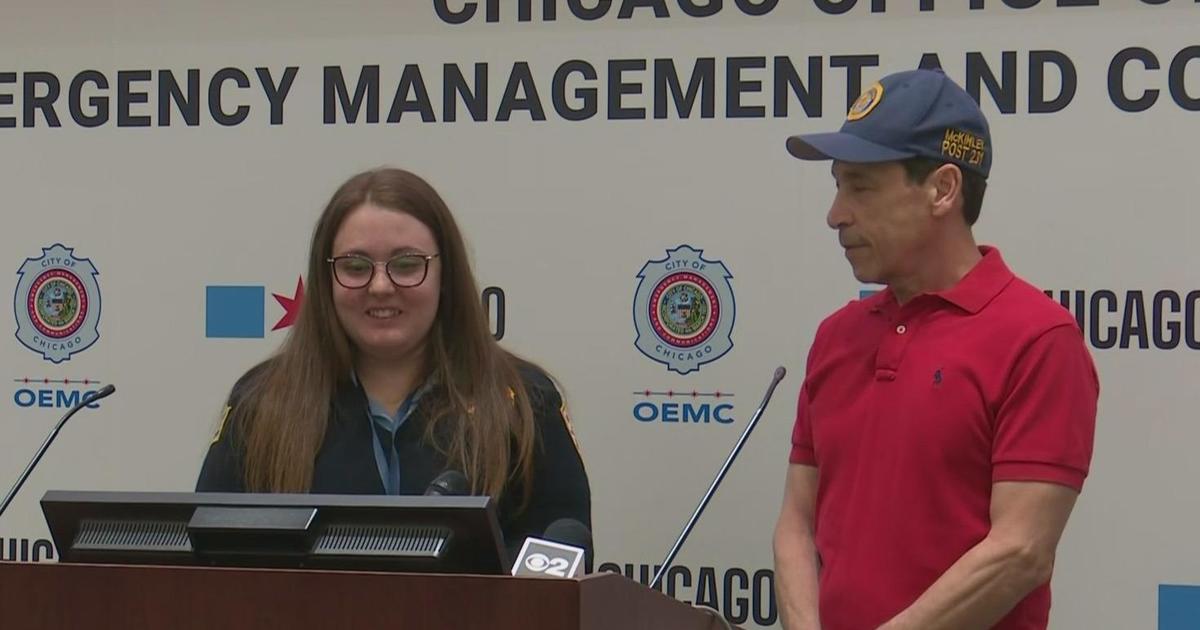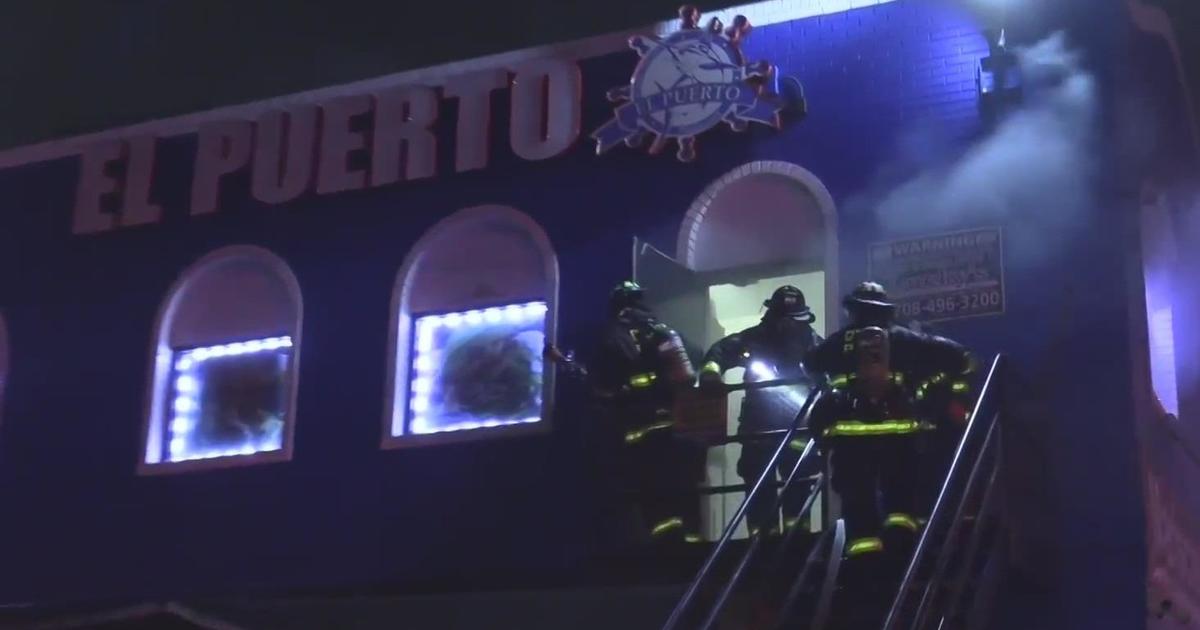U.S. Reps Demand To Know Why Fire Crews Are Stretched Dangerously Thin At Great Lakes, Other Naval Stations
GREAT LAKES, Ill. (CBS) -- They're exhausted.
We told you Monday night about the shortage at the federal fire department tasked with keeping Naval Station Great Lakes safe, and how that shortage is affecting surrounding communities.
On Tuesday, CBS 2's Tara Molina took concerns to our elected officials. She learned that members of Congress are also asking the Navy why the shortage, and the issues it is creating, are not being addressed.
The Great Lakes Fire Department is 12 people short, with more headed out the door – and they're exhausted.
Brian Pagliaroni – a Great Lakes firefighter, paramedic, and president of the IAFF Local F-37 –put it point blank.
"It's hard to basically do a job when you are mentally drained," he said. "When you're on 16 calls a day, there's no rest… it's not safe. At all."
Often times, firefighters at Great Lakes working five days in a row, 120 hours straight to make up for the number of people who've left and are gearing up to leave.
And when they can't make a minimum, the Great Lakes Fire Department is pulling first responders off the streets in nearby communities such as North Chicago, Libertyville, and Waukegan.
But it's not a money issue, nor is it a resource issue. Folks at Great Lakes Fire Department say it's a Navy issue.
"It's the federal government," Pagliaroni said.
The firefighters say the federal government is not listening to them, and to the Navy Region Mid-Atlantic's request for a schedule change.
Pagliaroni explained Monday that most federal firehouses have recently adopted an Alternative Work Schedule that allows firefighters and first responders more rest periods in between shifts.
But the Navy Region Mid-Atlantic, which Great Lakes Fire belongs to, is one of few federal firefighting regions that have not changed their schedule, according to Pagliaroni.
"It's mind-boggling, the fact that you ask for help and it just doesn't come," Pagliaroni said.
As it happens, the Navy Region Mid-Atlantic isn't listening to Congress either.
CBS 2 learned Tuesday that 12 members of Congress – including Illinois' 10th District Rep. Brad Schneider (D-Illinois), sent the Navy a letter asking why there has been no fix at any of the stations.
Molina was told the U.S. representatives never heard back.
In the letter to Rear Adm. Charles W. Rock, commander of the Navy Region Mid-Atlantic, the members of Congress asked the following questions:
-
- "How many firefighters at non-(Alternative Work Schedule) Mid-Atlantic stations have transferred or requested to be transferred to Fire Departments employing an AWS?"
- "How much did the federal government pay in overtime pay to firefighters based at NRMA stations in 2018?"
- "Has your department conducted a study on an AWS of 48 hours on, 72 hours off? If so, please submit as part of your response."
- "Has your department conducted a study on an AWS of 48 hours on, 49 hours off? If so, please submit as part of your response."
- "If an AWS has proven successful at a region, has your department taken steps to analyze if that AWS could be applied to the NRMA region?"
Rep. Schneider called it a public safety issue.In a statement, he said: "I am concerned about the situation at Naval Station Great Lakes, where short-staffing is pushing our local firefighters to the breaking point. Last month, I urged the Navy bring our local staffing schedule in line with national standards, which would help improve retention and offer relief to our overworked firefighters."
Pagliaroni agreed that it was an issue of safety being put at risk.
"If you've got somebody in cardiac arrest, you're relying on that one paramedic who could be here four days in a row."
When CBS 2's Molina hears back from the Navy's public affairs officer, we will share that information with you.



